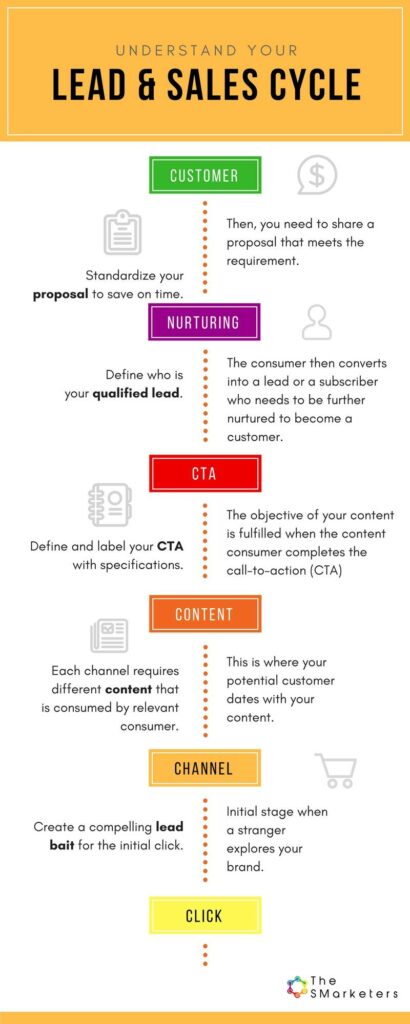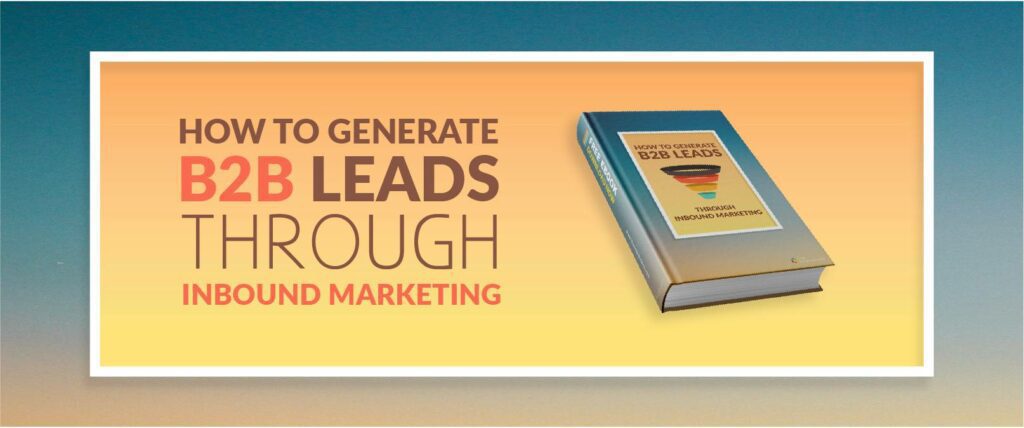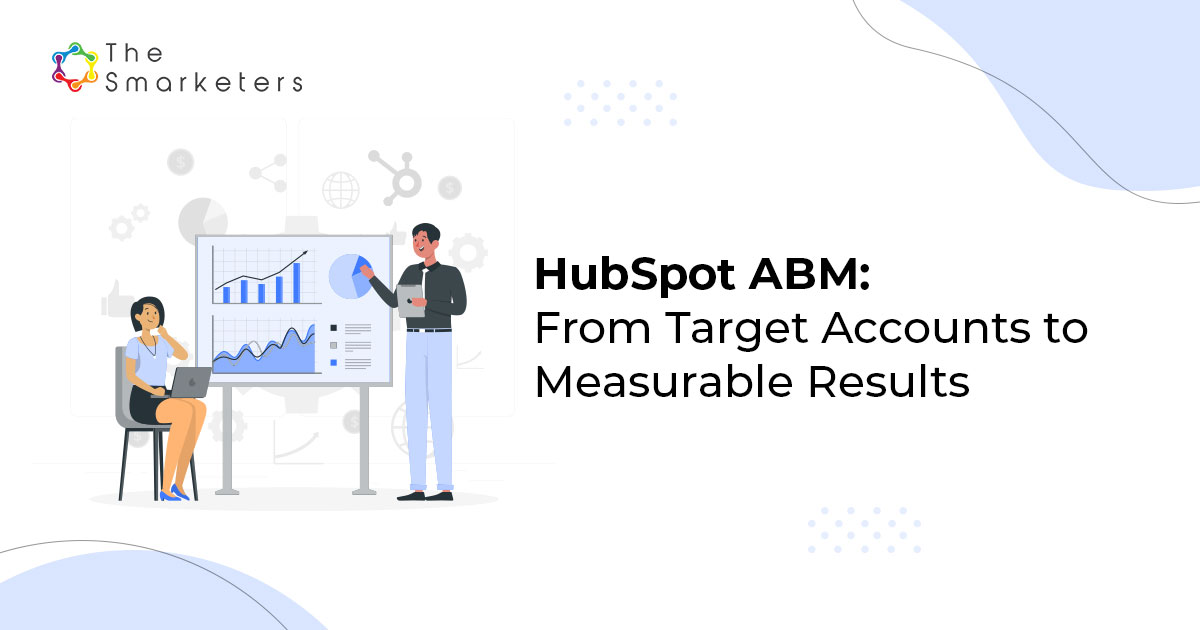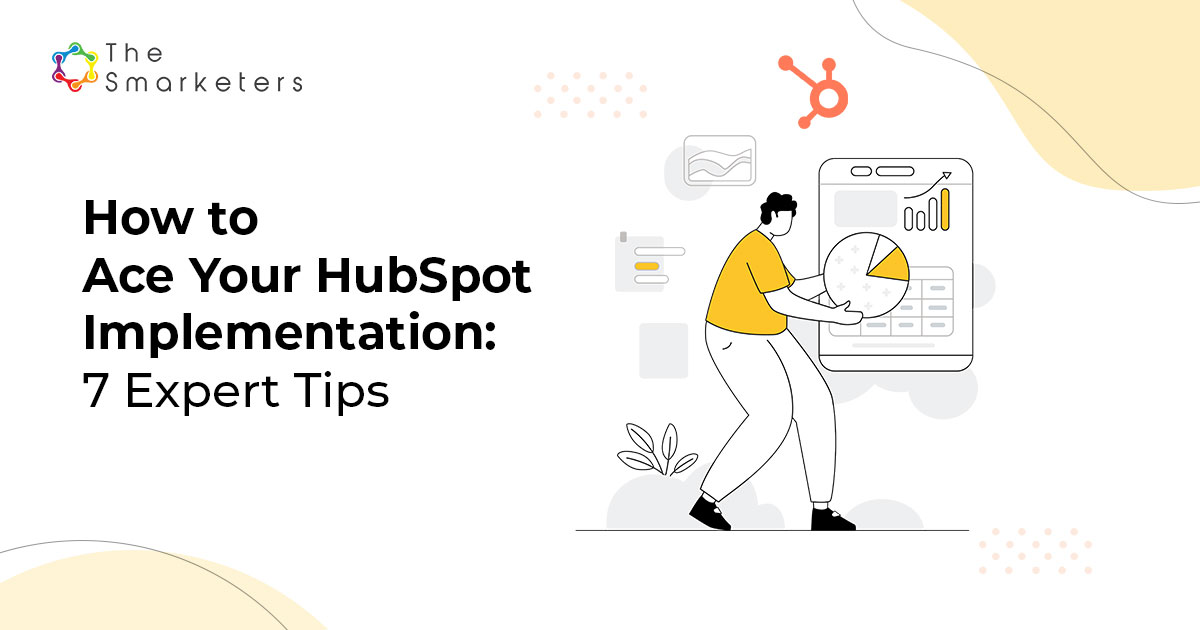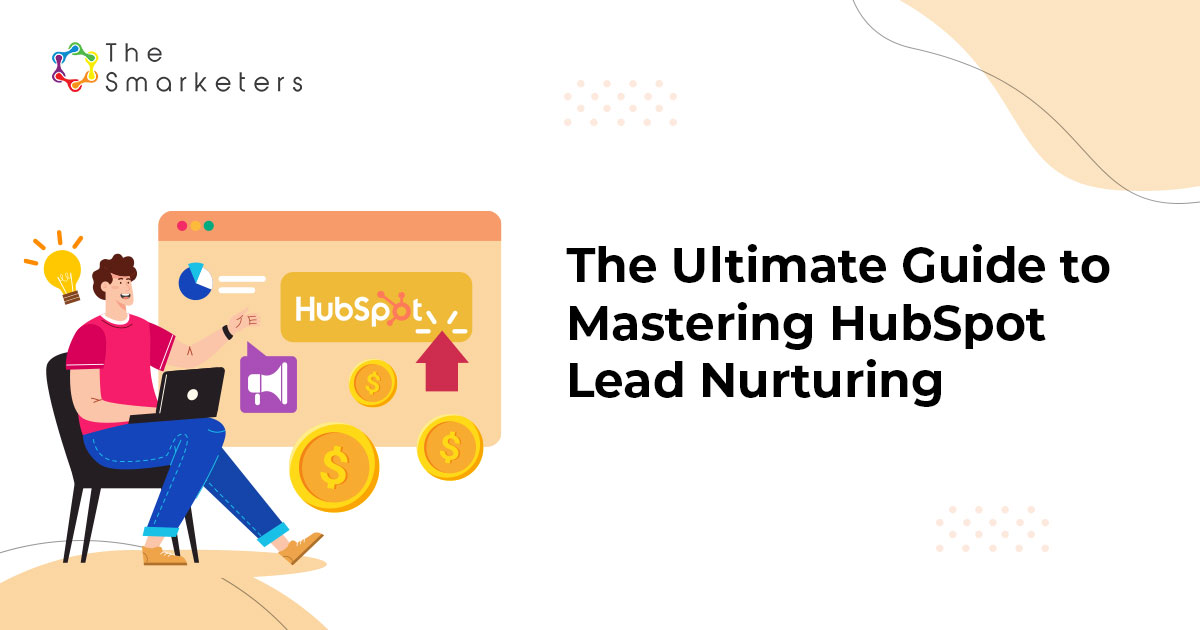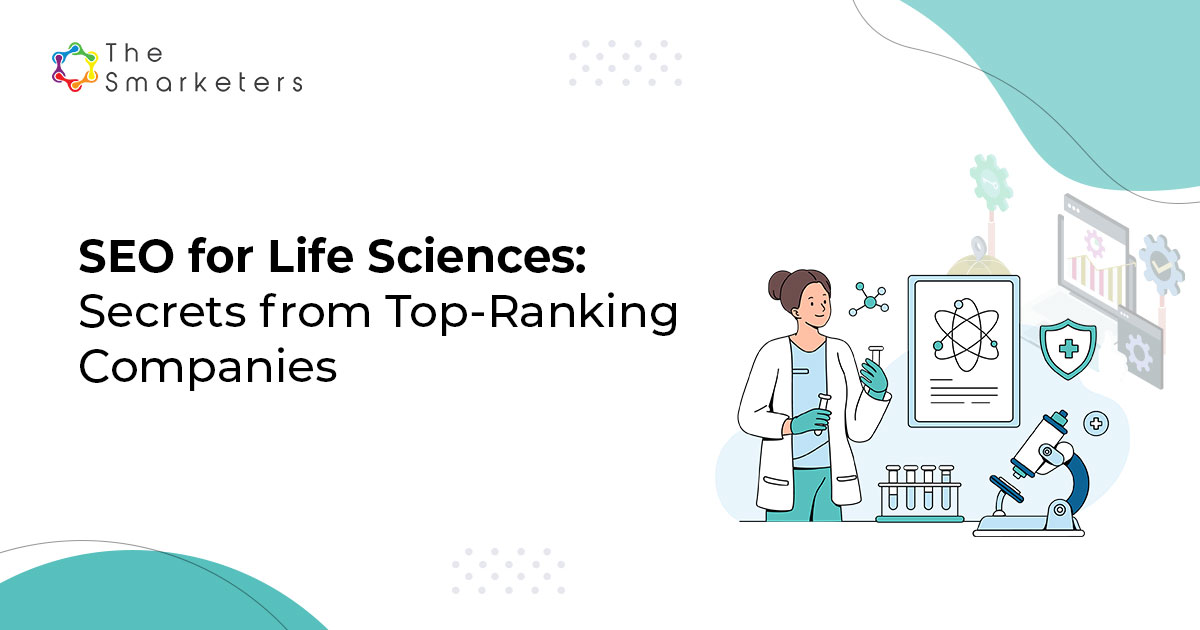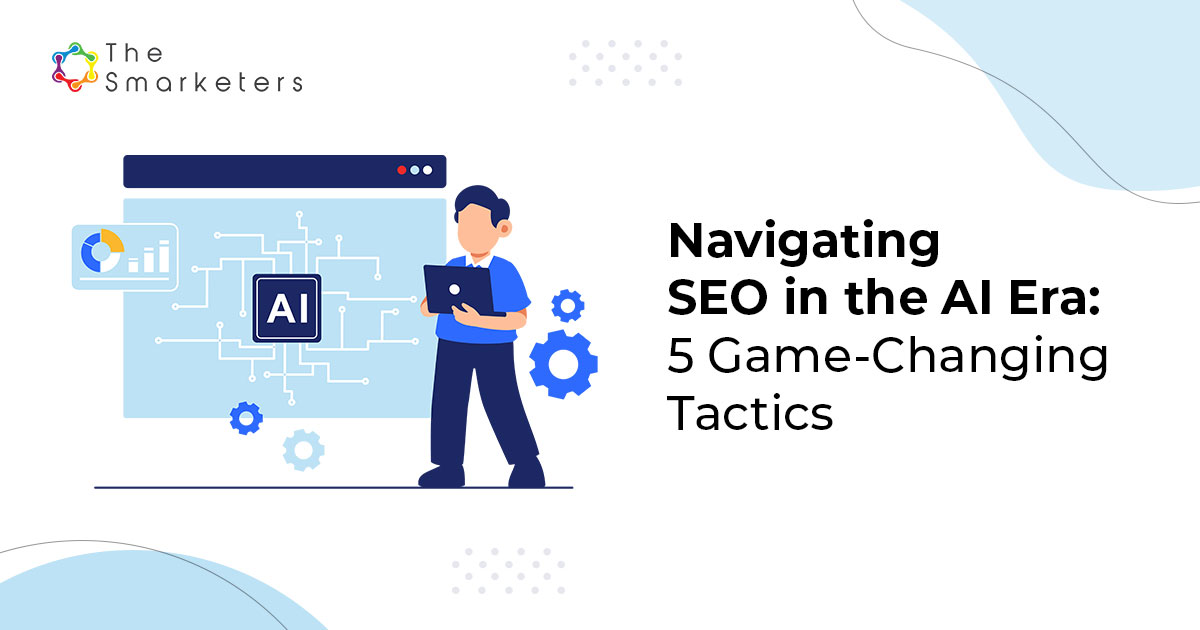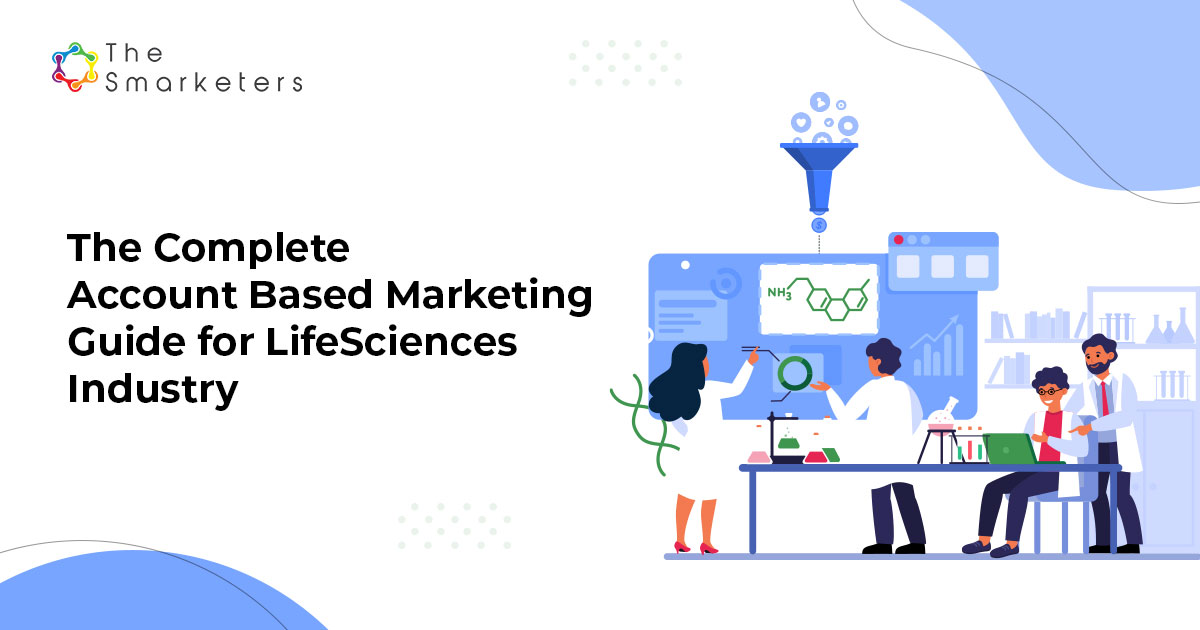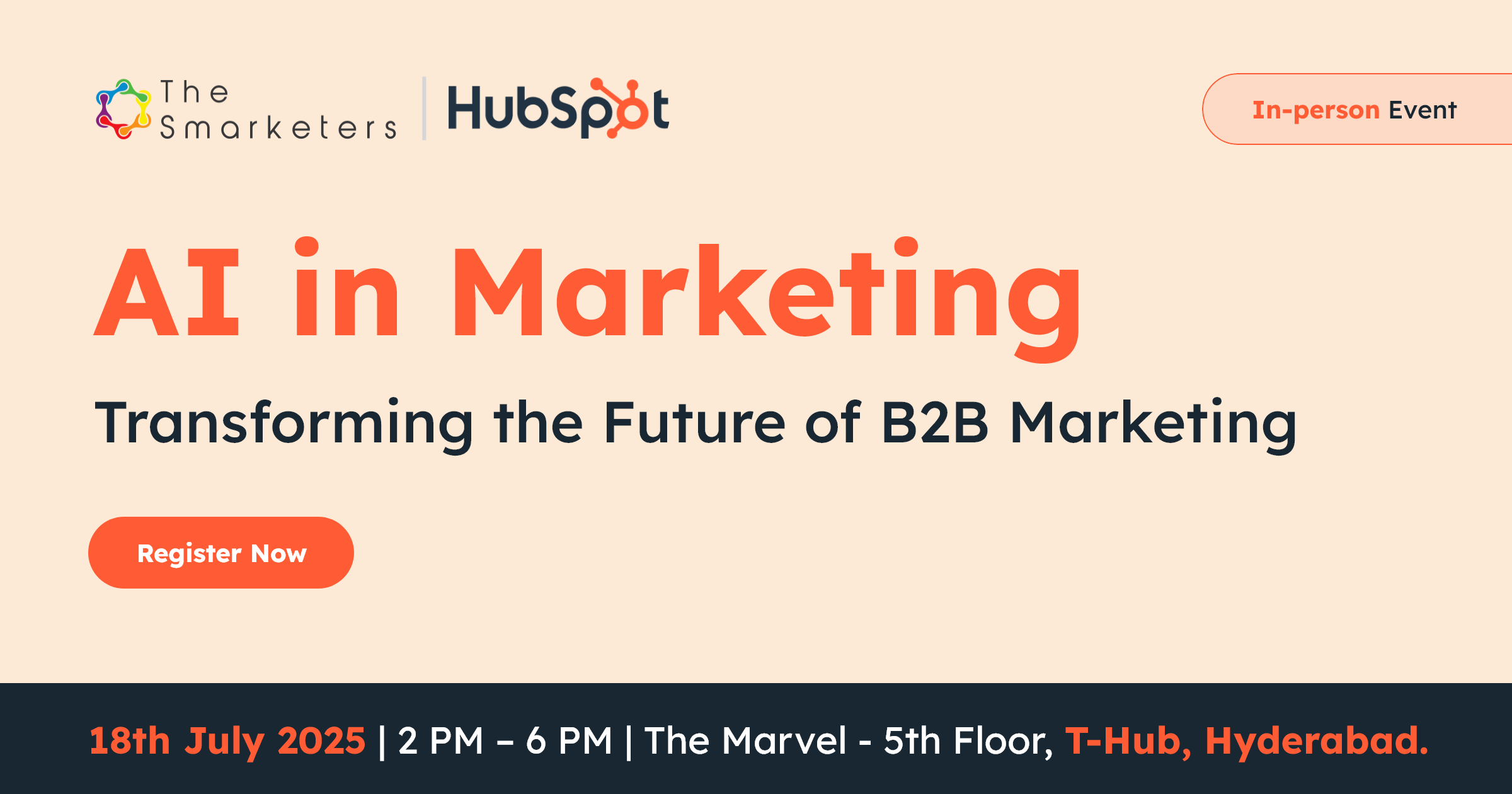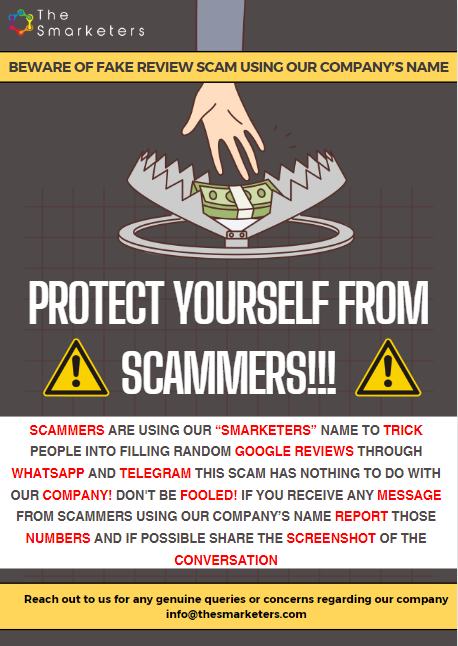When optimizing marketing efficiency and boosting conversions, B2B companies frequently face the question, “How to choose an inbound marketing agency?”
Sometimes, the concern gets more intriguing when enterprises want to determine how to choose a B2B lead generation company that can understand their marketing needs.
In 2023, B2B inbound marketing gained significant traction and growth. Therefore, it becomes vital to carefully choose a partner who can navigate the ever-evolving landscape of marketing strategies and technologies.
This blog will explore the intricate relationship between B2B inbound marketing and lead generation. Our primary objective is to address two critical questions:
How does B2B inbound marketing influence lead generation?
How to choose an inbound marketing agency with a comprehensive grasp of your specific marketing requirements?
What is Inbound marketing?
Inbound marketing is a systematic and well-executed approach to attracting potential customers to your product or service. Leveraging the power of content marketing, social media marketing, SEO, and other pull marketing tactics, inbound marketing strategies have proven to be a formidable and cost-effective way to achieve marketing goals.
Based on HubSpot’s State of Inbound report findings, 70% of marketers have deemed B2B inbound marketing services vital. This statistic underscores the indisputable value and significance of incorporating effective inbound marketing practices into every marketer’s toolkit.
In the dynamic marketing landscape, it is crucial to recognize that your customers are discerning and highly selective. To secure their favor and establish yourself as their preferred choice, you must be omnipresent, ensuring seamless integration of your message, communication, and product into their daily lives.
By fully embracing the strategies of B2B inbound marketing in 2023, you position yourself to guide your customers at every step of their buying journey. Prepare to embark on a transformative marketing journey to distinguish your brand and captivate your target audience like never before.
Have you been able to achieve success in your inbound marketing efforts?
Inbound marketing has proven highly effective in generating conversions by employing compelling pull strategies. The key to establishing a sustainable attention model lies in several critical elements, starting with the messaging on your website and extending to the use of blogs, infographics, videos, and impactful product messaging.
This article aims to guide you through the process of evaluating inbound marketing agencies and selecting one that best suits your specific needs. We will focus primarily on cultivating a robust lead-generation marketing campaign that leverages the power of inbound marketing.
Knowing each other – Does the inbound marketing agency know you completely?
Even before you get entangled with the industry jargons while speaking to an inbound marketing firm, you need to understand each other and sync up at different levels.
It begins with the agency’s ability to understand your business, industry, customer expectations, communication channels, sales, and leads cycle. The agency would have this kind of experience only if they have dealt with accounts similar to yours. If they haven’t dealt with companies like yours, it would be an equal learning curve for the agency too, in implementing an effective inbound marketing strategy.
Let’s begin by dealing with one question at a time.
Does the firm understand your business and industry?
A B2B inbound marketing agency must demonstrate a thorough comprehension of your business and industry. Conducting in-depth research should enable them to gather fundamental information about your products or services, competitors, industry trends, and historical background.
Consider, for instance, the scenarios of fin-tech and AI companies. These sectors each possess unique dynamics within the B2B environment. The characteristics and preferences of customers vary significantly, as do the content requirements, communication style, and channel selection when devising an effective inbound marketing strategy.
The agency must thoroughly understand your business needs and design a tailor-made approach to ensure a competitive edge and success.
Do they know where to find your leads?
Let’s take the same example mentioned above. A fin-tech company could serve banks, micro financers, accounting firms, training firms, etc.
The inbound marketing firm should understand the nuances of your services and find relevant leads for your firm.
The same is the case with an Artificial Intelligence (AI) solution.
Leads conversions, lead nurturing, and lead education could happen at different places and channels, or they could all happen at one place. This aspect needs to be identified by the firm and brought to your notice.
This knowledge would help you shortlist a B2B Inbound Marketing agency.
Do they understand your Sales and lead cycle?
Each company’s sales and lead cycle is very different. This is critical because it helps the agency understand the customer journey. Each customer persona would have a different path in the journey of a potential lead converting into a final customer.
Identifying the funnel across multiple customer paths and choosing relevant tools to target and convert them sets an inbound marketing agency apart.
Your team must discuss the complexities and needs of different sales and lead funnel stages with the inbound agency. Mapping a plan will help both teams determine channel optimization strategies. Here is a sample that we have created for you.
Some of the efforts that work best based on effectiveness are listed below, corresponding it to the different levels of a marketing funnel.
| Levels of a marketing funnel | Different works by priority that work well |
|---|---|
| Top of the funnel | Content marketing, Paid media, social media, direct mail and events |
| Middle of the funnel | Content marketing, social media, paid media, events and direct email |
| Bottom of the funnel | Content marketing with direct mail, Paid media and events. |
Channel optimization – What are the channels that work for you?
Once the agency obtains information regarding your customer journey and their touchpoints, it is essential to identify the correct engagement channels.
You can effectively work towards achieving your ultimate objective by employing various channels such as your website, blog, chatbox, social media platforms, and news sites. Each of these channels holds relevance in attaining your final goal.
We gathered some insights that showcase top B2B channels that work best for different industries.
- Manufacturing – Email marketing and referrals
- Education – Content marketing and SEO
- Financial Services – Email marketing and Tradeshows
- Technology – Content Marketing and SEO
- Health, Wellness, And Pharmaceuticals – Paid Search and Referrals
- Business Services, Logistics, and IT Marketers – Content marketing and Word-Of-Mouth
- Marketing and Creative Services – Referrals
Your agency should have a list of inbound marketing channels and techniques that will speak best with your potential customers.
What is your goal? – Communication of the Goal
A most important aspect of the know-how is to share definite and finite goals with your agency based on which you can validate the success of the inbound marketing plan.
Your goal needs to be a clear metric in the form of – online sales, referrals, qualified leads, lead form conversions, subscriptions, followers and so on. While these would be your final goals, you would also need to define a goal at each level of the marketing funnel.
Here is a short overview of the typical goals that you may define at each level of the funnel –
[table strip=”striped” border=”bordered” compact=”” hover=”hover”][thead][tr][th]Level of Funnel[/th][th]Probable Goals[/th][/tr][/thead][tbody][tr][td]Awareness[/td][td]Keyword ranking, Organic website visits,[/td][/tr][tr][td]Interest[/td][td]Bounce rates, Page time spent, engagement rate, Interaction on chat bot.[/td][/tr][tr][td]Consideration[/td][td]Number of shares, downloads, subscriptions. Subscription to webinars(Ebooks, blogs, whitepapers)[/td][/tr][tr][td]Intent[/td][td]Ask for a product demo[/td][/tr][tr][td]Evaluation[/td][td]Ask for proposal or price list[/td][/tr][tr][td]Purchase[/td][td]Completion of sales transaction. Typically recorded offline in case of a B2B transaction.[/td][/tr][/tbody][/table]
To make this happen, an inbound marketing agency should assist you with,
- Building customer personas
- Identifying, defining and implementing touch points all through the communication journey, which are also referred to as marketing triggers.
- Creating a set of keywords relevant to this exercise
- Tracking inbound marketing goals
Capabilities, Team, Skills, and Credibility
After determining the agency’s competency and capability to meet your objectives, it is time to delve deeper into understanding the inbound marketing firm.
You can follow the simple checklist below or dive into details for a more comprehensive understanding.
- Team Credentials: Learn about the expertise and qualifications of the agency’s team members.
- Additional Resources: Find out about the consultants and freelancers assigned to your project.
- Marketing Strategies: Understand the approaches and techniques employed by the agency to help you reach your marketing goals.
- Portfolio and Case Studies: Evaluate the agency’s past work and examine its success stories and credentials.
- Technology Certifications and Expertise: Consider the agency’s proficiency and certifications in relevant technologies.
- Point of Contact: Identify the person from your team who will be the primary POC with the agency.
You will gain valuable insights into the agency’s capabilities and make an informed decision by thoroughly exploring these aspects.
Tip: Check out customer reviews and testimonials to validate their credentials.
Who are the team members on your team?
Does this matter?
Yes!
It is crucial to have a dedicated and skilled team to drive your inbound marketing strategy toward success. Here is an overview of the key individuals who could be part of your team, each playing a vital role:
- Strategist: The mastermind behind crafting and executing an effective marketing plan.
- Content Manager/Editor: An expert who ensures top-notch quality and consistency in your content.
- Content Writer: A creative wordsmith who crafts compelling and engaging content for your audience.
- Illustrator/Graphic Designer: The artist who adds visual appeal and enhances your brand’s aesthetics.
- Account Manager: Your dedicated point of contact who manages the overall campaign and ensures your goals are met.
- Social and Community Manager: The expert who handles your brand’s social presence and engagement with your audience.
- PR Associates: Skilled professionals who manage your brand’s public relations and media interactions.
- Data Analyst or Scientist: A tech-savvy individual who analyzes the data and provides valuable insights.
- Domain Experts: Industry specialists who bring their knowledge and expertise to your campaign.
Collaborating with trusted agency partners like Google, Hubspot, and Marketo further expands your capabilities.
While not all team members will work on your campaign full-time, their collective experience enriches your project with fresh perspectives. Rest assured, the team will be fully accountable for achieving the mutually agreed goals, ensuring maximum credibility and success.
What are the other resources you will employ?
Apart from the experts mentioned earlier, inbound marketing firms use a combination of tools, professional partners, and other resources for which you may be required to pay additional or use for free. This is the right approach for lead capturing.
Some such tools could be –
- Email marketing – Mailchimp, Hubspot
- Integrated marketing software – Lead squared, Hubspot, Marketo
- Communication tools – Contently, Buzzfeed
- Analytical tools – Google Analytics, Kissmetrics, Mixed Panel, Adobe Analytics
- Influencer marketing platforms – Tapinfluence, Trackr, Speakr
- PR tools – Prezly, Cision
Apart from using any of the tools mentioned above, some inbound marketing and lead gen agencies come in as partners to these organizations, which provides an edge in expanding your network and implementing the campaign better.
What strategies will you use while deploying my lead gen/inbound marketing action plan?
Here is a critical question typically left out as an obvious assumption during introductory discussions. Not all strategies apply to each case. Discuss and understand which procedures will be applied to your inbound marketing campaign.
- Email marketing
- SEO
- Content marketing
- Social media
- Influencer marketing
- Lead nurturing
- Other online branding and communication
Either one or a combination of them could be relevant to you. Some agencies also take up sponsorship partnerships, offline endorsements, and event engagement as a part of their inbound marketing strategy.
What are the other projects/ clients you have worked on? How long did it take to achieve the results?
Simply put, you are asking the agency for its portfolio and track record. This is super critical to know the worth of your agency that you are talking about. If the agency is relying on fluff, these criteria would receive a zero score.
The portfolio should speak about the scale and type of problems that the agency has solved. It is also required to know the details of the network that the agency brings in, the capacity to solve new challenges and the ability to adapt to newer technologies in the process of achieving their targets.
Some metrics that you should track while evaluating their portfolio are provided here –
- No. of qualified leads generated
- Increase in organic website traffic
- Social engagement
- Subscriptions at different levels of the funnel
- Sales Opportunities
- Backlinks and brand mentions generated
You can define your own unique metrics that add meaning to your marketing efforts and the inbound marketing campaign. These metrics could be compared with the real-time achievements of the agency.
What technologies will you use?
Technology plays a pivotal role not just in terms of branded solutions but also in the overall effectiveness of your company’s marketing system. As an agency, possessing the knowledge, capability, and support necessary to implement and leverage various technologies throughout your inbound marketing campaigns is crucial.
You can either incorporate these technologies within your organization or entrust them to the expertise of an agency. Should your B2B company adopt inbound marketing strategies for lead generation or any other purposes, you may find the following categories applicable.
To help you understand each category, we have provided a few examples –
- Content Management System (CMS) – WordPress, Drupal, Joomla, Magento, etc.
- Marketing automation systems – Marketo, Hubspot, Salesforce Pardot, Eloqua
- Customer Relationship Management – Salesforce.com, Netsuite, Sugar CRM, Microsoft Dynamics
- Inbound Marketing Analytics – Adobe Analytics, Oracle, Hubspot, Google Analytics, Mixed Panel.
- Paid search marketing and programmatic management tools – Google AdWords, Adroll, Adobe Marketing Cloud, Double Click, Choozle
- Landing page management – Capterra, Unbounce, Instapage.
- Social media management tools – Hootsuite, Bitly, Sprout Social, Buffer
- E-commerce website manager – Magento, Woo themes, Shopify, Prestashop, Actinic.
Intelligence that your organization needs to have before hiring an inbound marketing partner.
To ensure a successful partnership with an inbound marketing agency, it is crucial to consider certain key factors. While we have already discussed the necessary evaluation parameters for hiring such an agency, another critical aspect must be addressed.
Your organization needs knowledgeable personnel who fully comprehend the intricacies of working with an inbound marketing agency. The designated point of contact, usually the marketing manager, should take complete ownership of this engagement and ensure that the agency meets your specific requirements.
Now, fall back to the checklist we previously mentioned. Take a closer look at the different technologies, tools, and human resources involved, and decide what aspects you want to handle in-house versus what can be outsourced to the agency. A clear distinction promotes smooth collaboration and improves efficiency.
Establishing a solid foundation and defining clear expectations is paramount for a fruitful partnership with B2B inbound marketing services.
Lead-gen campaign design
Now that you’ve familiarized yourself with the potential inbound marketing agencies you want to partner with, it’s time to design an effective inbound marketing campaign.
This section focuses on a vital aspect: “How to design a lead generation (lead gen) campaign?”
We’ll walk you through the steps to ensure your campaign is set up for success.
You may already know that most inbound marketing campaigns aim to generate leads. However, only generating leads may bring little value to your marketing efforts. What truly matters is recognizing and defining a “qualified lead.” The real value lies in evaluating a campaign’s success based on the number of qualified leads it brings.
Once you clearly understand what qualifies as a lead, you can start designing a lead-gen campaign that hits the mark.
Remember these essential components as you design your campaign:
- Engaging Content: Create compelling and valuable content that resonates with your target audience. This will capture their attention and encourage them to take action.
- Captivating Landing Pages: Design landing pages that are visually appealing, user-friendly, and optimized to convert visitors into leads. Focus on delivering a clear and concise message that drives visitors to take the desired action.
- Compelling Calls-to-Action: Use persuasive and actionable language in your call-to-action buttons and links. Communicate the benefits and encourage visitors to engage further.
- Lead Nurturing: Implement strategies to nurture the leads you’ve gathered. Develop personalized and tailored communication to guide leads through the buyer’s journey and convert them into customers.
Will the campaign be flexible and scalable?
Your lead generation campaign should be designed to fit in scaling up and mellowing down the scale of the campaign. You can consider any of the following scenarios for the same.
- Budget – If you have a budget of Rs.1,00,000 for a given month and if there is a need to bring down your budget to Rs. 20,000, check if your agency can do that for you. Budgets can change due to availability of inventory, sale seasons or ineffective channel.
- Channel experimentation – When you are in an experimentative mode, trying to analyze which of the channels work for your brand, flexibility is key. You need to fit this into your schedule, where you may check Facebook for 3 months and then may Linkedin or Instagram based on your audience.
- Timing – This is a neglected and overseen area. Let campaign include customized timings into the campaign. Your audience might be engaging with your content mostly during the early hours of a day or during a tea break. These facts would be revealed only when you give enough room for experimentation.
How will you focus on my business location?
When your product or service is driven by the location, geo flexibility within the lead gen campaign is of high priority.
As you come up with new stores in new cities, your lead gen campaign needs to adapt to the pulse and language of the new location for your new audience. Few aspects of care are mentioned here –
- This needs to be linked into your CRM software.
- Use an opt-in feature while creating a data entry form for your potential leads.
- Ask users for location-based notifications in your communication.
- Add location-specific offers in the campaign
- Do not use a permanent ‘set it’ feature. Keep changing with time.
- Include hyper-local terms in the keyword search exercise.
- Include hyper-local influencers in the inbound marketing strategy.
The list can go on and be customized as per your needs. Geo-specific campaigns also have the advantage of adjustable costs based on location-driven demand and product pricing.
What would be the costing?
This is always a hot segment. Our clients always ask us how the costing works. You can use this list while discussing the cost of your campaign with your lead generation agency.
The apparent costs included in a lead generation campaign are –
- Advertisement budget – Text, display and inline ads, PPC
- Cost paid to writers and influencers
- Any exclusive Software/ SaaS platform costs – CRM, email management
- Agency service management fee
- Social media management fee
- The salary of your marketing manager and other employees involved in this campaign
While this is a list you can begin with while negotiating a deal, there are some important KPIs (Key Performance Indicators) that you should understand beforehand. You should also discuss these with your potential agency.
These KPIs need to be included within the monthly reporting system that will help you check the progress of the inbound marketing campaign and further the lead generation campaign.
It would also help you calculate the ROI at a much faster pace.
- Cost per lead
- Cost per qualified lead
- Organic traffic to the website vs Paid traffic
- Organic leads vs Paid leads
- Lead qualification rate
- Lead conversion rate
- Cost per Sale
- Cost per lead by channel
- Cost per lead by Location
- Cost per rupee/ dollar earned
This is a good beginning to start with. They also set good reporting standards to measure your overall marketing performance.
The costing details would also include discussion of policies like refund policy, upgrade and downgrade packages, cancellation in the middle of a consigned tenure.
How will you measure the success of your effort and manage resources?
Your inbound marketing campaign needs to be measured, without which the effort that goes into it is futile. To measure an inbound marketing campaign, you would have to include a few elements into the campaign –
- Call to Action buttons
- URL management tool
- UTM tags into the URL
- A/B testing templates for email layouts as well as landing pages
- Lead attribution
- Campaign output expectations
- Campaign resource assignment
Once you take a due care to include these elements, you can create your reporting statement using the following measurement metrics.
- Lead conversion rate
- Cost per lead
- Cost per customer acquisition
- No.of subscribers
- The lifetime value of a customer
- Return on Investment (ROI) – This is not just the ROI at an organizational level, but also at other levels of the campaign hierarchy like ROI of the campaign, ROI of
These metrics not only state the success of a given campaign but also the profitability of your marketing efforts which is of great interest to the CFO and CEO of your organization.
After having inferred at these metrics, you may also want to track the number of resources being deployed on hand for your campaign on a monthly basis.
Some of the resources that will add to your variable costs are –
- Content writers
- Influencers
- Bloggers
- Designers
- Videomakers
The other variable costs that you should consider would be the subscription fee that would be paid to a CRM provider, online applications and email database management applications.
Let’s Team Up!
At Smarketers, we understand the significance of inbound marketing in achieving your business goals. Our team offers a comprehensive range of services tailored to meet your specific inbound marketing needs. We take a personalized approach to every project, ensuring our strategies align with your business objectives.
When you partner with us, you can expect a thorough evaluation of your current marketing efforts through a detailed marketing audit and buyer persona analysis. It helps us understand your target audience and craft a customer-focused strategy.
With content creation being a cornerstone of inbound marketing, our team creates compelling and informative content that engages and educates your readers. We believe in establishing credibility and trust with your audience, ensuring that your content resonates with them.
We prioritize conversion optimization, guiding prospects seamlessly through the sales funnel using relevant content and effective lead-nurturing techniques.
We Are Not Done Yet!
Creating a detailed project plan and establishing a suitable budget is crucial to managing an inbound marketing campaign and selecting the perfect agency. Once you have determined the specific type of agency you require, you can embark on the search process.
In our upcoming episode of ‘How to Choose an Inbound Marketing Firm that Works for Your Lead Generation Needs?‘, we will delve into these critical aspects and provide invaluable insights on finding a reputable inbound marketing agency.
By exploring the micro aspects, you will understand how to plan and execute a successful lead generation campaign strategically. This is pivotal as it is one of the primary motivations for adopting an effective inbound marketing strategy.
Are you ready to take your inbound marketing to the next level? Get in touch!


